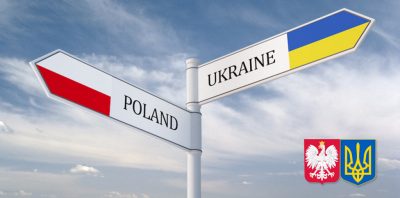Economic Matters in Ukraine Are at Standstill

It was a quiet year for Ukraine and its many issues compared to previous years, or at least in the eyes of most Westerners. Other global issues, such as the COVID-19 pandemic and elections in Belarus, took greater precedence and international focus. Most of the international community and media are no longer interested in the situation in Ukraine, with only passing mentions when the European Union or the U.S. renew their sanctions regime against Russia for its unification with Crimea. Although skirmishes in the breakaway Donbass region occur time to time, it is mostly stagnant, along with Kiev’s claims on Crimea – only Poland is taking an interest in Ukrainian events.
An exception to this “quiet” year was Kiev’s attempt to manufacture a humanitarian crisis by cutting off water supplies from the North Crimean Canal to the peninsula. This human rights violation was to the disinterest of the UN Human Rights Commission. Kiev’s provocative actions will ensure that any Crimeans who were sympathetic to Ukraine will be marginalized. In fact, Ukrainian authorities view local residents as enemies of the state, rendering statements by Kiev about the necessity of reintegrating Crimea into Ukraine as absurd.
In Donbass, even less has changed. Ukrainian President Volodymyr Zelensky claims he still supports the Minsk Protocols, but is reluctant to start implementing it. The logically and legibly worded protocol, proposed by Germany’s former Minister of Foreign Affairs and current German President, Frank-Walter Steinmeier, was in practice rejected by Kiev as they never enacted many of the points in the protocols. This includes the decentralization of power, improvement to the humanitarian situation in Donbass, and adopting a programme of economic recovery and reconstruction in the war-torn region.
In an October joint declaration between Zelensky and Polish President Andrzej Duda, it was emphasized that Poland was ready to join efforts to “de-occupy” Crimea in the international arena. Similar to the Donbass case, Warsaw continues to use war rhetoric put into circulation by previous Ukrainian President, Petro Poroshenko. Polish involvement in Ukrainian affairs has clearly decreased not only due to the COVID-19 pandemic, but also due to the emergence of another color revolution attempt on Russia’s borders – this time in Belarus. And yet, the foreign affairs minister of Lithuania, Poland and Ukraine prominently announced the creation of an initiative called the “Lublin Triangle”.
Lithuania, Poland and Ukraine created the “Lublin Triangle,” a trilateral platform for these three countries to counter supposed “ongoing Russian aggression” and show their “firm support” for Western institutions. In their joint declaration, the Foreign Affairs Ministers of the three countries condemned Russia’s “ongoing aggression” and its “attempted annexation” of Crimea, while welcoming Ukraine’s “European choice.” Effectively, the trilateral platform is a pillar for the three countries to enact Washington’s main foreign policy priorities in Eastern Europe, that they incorrectly call “Central Europe.” Although it is not very clear what specific actions the triangle is supposed to take, it is understood that one of its main interests is to bring about a change of power in Belarus. Indeed, the efforts of all three countries in recent months have focused on destabilizing the situation in Minsk.
Meanwhile, economic matters in Ukraine are at a standstill. After 2014, Polish entrepreneurs, due to the huge financial risk and a wave of bankruptcies in Ukraine, as well as legal instability and the weakened justice system, are not very interested in cooperation. The exception are state-owned enterprises, which do so for political reasons. Possible investments by Polish state-controlled PGNiG oil and gas company in the Ukrainian market are primarily related to politics and the need to construct a network of recipients for American gas imported by Poland.
In fact, despite Ukraine neighboring Poland and supposedly being close allies, the eastern European country is only Warsaw’s 16th biggest partner in foreign trade. Its decline in importance will likely continue.
Sławomir Nowak, a Polish politician who served as chief of Ukrainian transport agency Ukravtodor, was arrested in Poland at the behest of Ukrainian services on suspicion of corruption, management of an organized criminal group, and money laundering. Following this arrest, that is often described as being made on flimsy evidence, there will be a shortage of people willing to work as advisers to Ukrainian companies and public institutions.
The pandemic crisis partially closed Polish borders to Ukrainians. However, there still large amounts of Ukrainian nationals in Polish cities. This is despite the import of cheap labor decelerating significantly. Ukrainians already started looking for work further afield than Poland as the industries in which they worked were significantly affected by COVID-19 measures.
For years, Ukraine has been the most important center of interest for the Polish political elite. In the sphere of rhetorical declarations, nothing has changed. Behind these bombastic declarations however, there are no real forms of cooperation. Kiev has much more important partners than Warsaw, such as Washington and Ankara. Ukraine also has its problems in dealing with economic catastrophe, something that Poland is unable to solve for its neighbor due to its own limitations. The problems of Ukraine will remain Ukrainian issues, despite rhetoric made by Polish officials.
*
Note to readers: please click the share buttons above or below. Forward this article to your email lists. Crosspost on your blog site, internet forums. etc.
This article was originally published on InfoBrics.
Paul Antonopoulos is an independent geopolitical analyst.
Featured image is from InfoBrics

